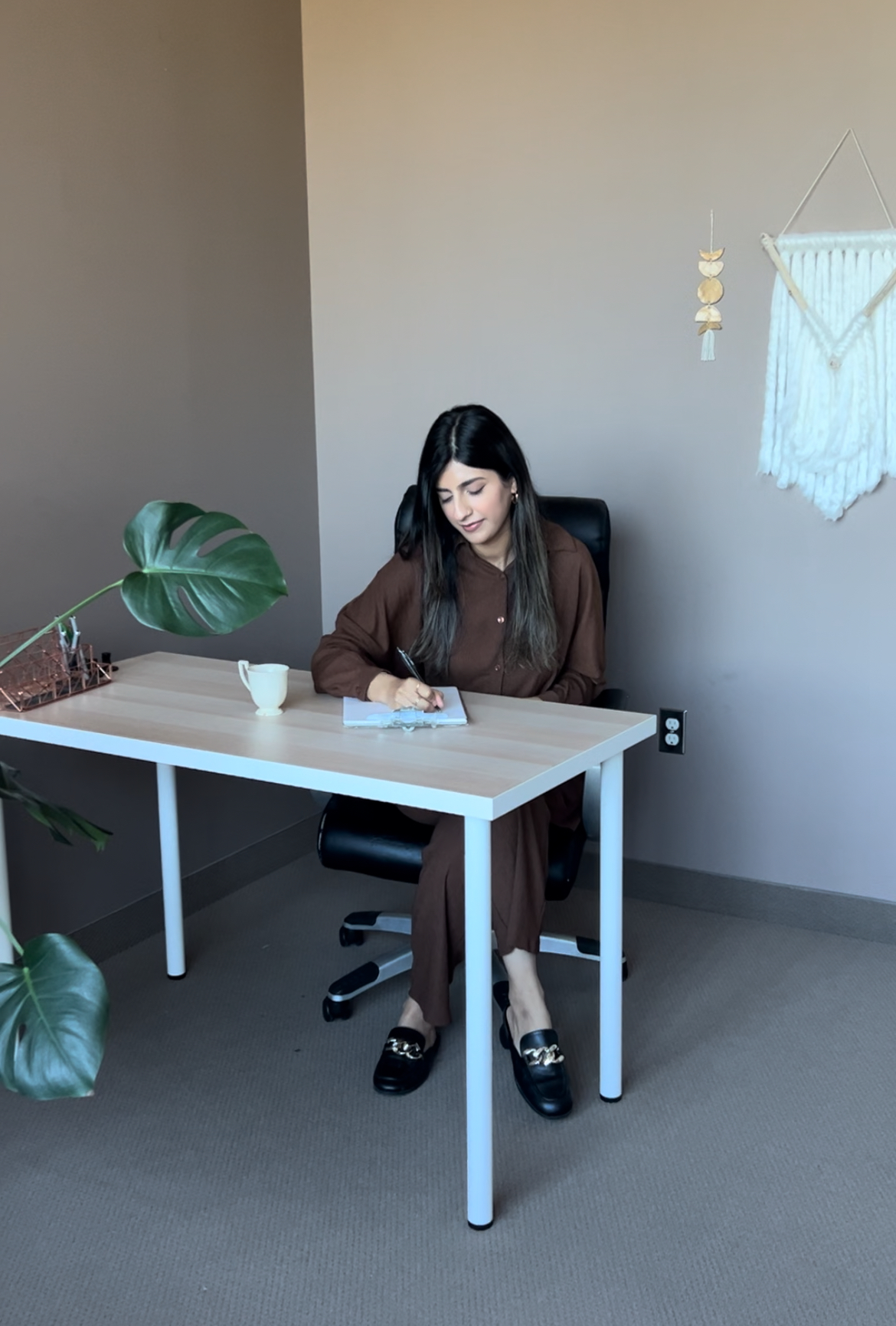Stepping into the therapy room means stepping into a space where all the layers of identity, such as culture, gender, family background, and beliefs, come to the surface. As someone who immigrated to Canada from Pakistan as a young child, I’ve experienced how identity is a unique combination of influences, often combined with challenges and learning opportunities. In therapy, the various aspects of who we are influence our understanding of challenges, experiences, and solutions. When we bring these layers to the therapy room, we deepen our understanding of our unique ways of interpreting and engaging with our challenges and complexities.
Recognizing and honouring these layers makes the therapeutic journey more
personalized, creating a space where we feel seen and understood through all our complexity. Growing up in Canada while being in touch with my roots meant I was constantly trying to figure out how to balance two different worlds. There were days when I felt like I had to be one version of myself at home, respecting cultural traditions and expectations, and another outside, adapting to a different set of social norms. This often made me feel caught between identities, neither fully one nor the other. But with time, I realized that my identity isn’t just about balancing two worlds; it’s about integrating them and creating a unique sense of myself that embraces both.
When I work with diverse individuals, many share similar experiences of feeling torn between multiple identities or feeling overlooked because their experiences don’t fit easily into one box. Society, which often defines people by a single aspect of their identity, also influences these personal challenges. Therapy allows us to challenge these narrow definitions and explore what it means to embrace our wide-ranging selves.
This is where the idea of intersectionality comes in. Intersectionality is the concept that our
identities aren’t singular; they interconnect in unique ways. For instance, a young woman who identifies as both South Asian and Canadian may experience unique societal pressures, both from within her cultural community and from outside of it. Her ethnicity, religion, and gender interact, creating experiences that are not fully understandable if we focus on any one of these aspects in isolation.
Our experiences of identity can bring up a range of emotions, from pride and belonging to
feelings of being misunderstood or out of place. Someone may carry a deep connection to their heritage while also feeling pressure to adapt or “fit in” within Canadian society. In therapy, acknowledging these layers helps create a more accurate picture of a person’s experience and the unique pressures they face. Our layers of identities show up every time we process conflict and challenges in life, and the best part is that in therapy, our layers can help provide us opportunities to access our diverse inner strengths to rely on during such times.
By having these conversations, we often find greater self-acceptance. We begin to see how our experiences, strengths, and even struggles can coexist, creating a fuller picture of who we are. We can perceive the therapy room as a space of empowerment, a place to redefine identity on our terms, as we navigate challenges and celebrate personal growth!
Embracing the many layers of our identity reminds us that they add depth and resilience to our lives. Our layers aren’t just parts of our past; they are living pieces that grow and adapt with us. As we continue our journeys, we look forward to discovering new ways they will show up, support us, and add richness to our paths.
Uswah is a Registered Social Worker and psychotherapist in Hamilton, Ontario. She works with experiences of anxiety, depression, trauma, relationship issues and cultural identity. Uswah is probably spending quality time with her family, friends and cats right now. More questions? Reach out here.


Your reflections on the complexities of identity in the therapy room resonate deeply. It’s inspiring to see how you honor the unique layers each individual brings, making therapy a space for genuine understanding and empowerment. Your own journey of balancing cultural worlds and creating an integrated self is so relatable and encouraging for anyone navigating similar experiences. Thank you for highlighting the power of intersectionality and creating a supportive environment for others to embrace their full, intricate selves. Keep up the wonderful work, Uswah!